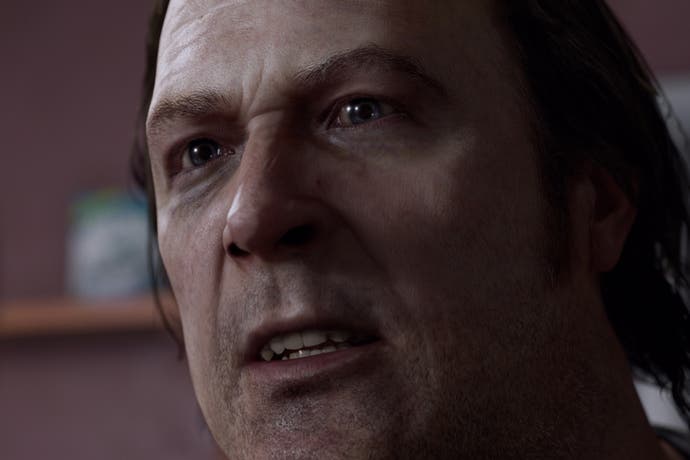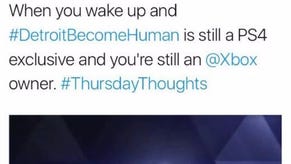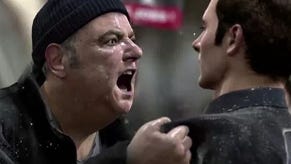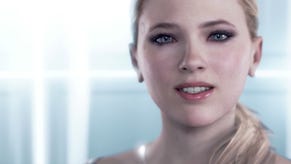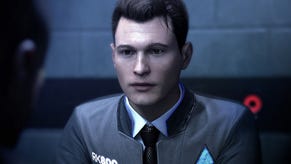Detroit: Become Human under fire for controversial domestic abuse scene
UK MP and children's campaigners express concern.
Children's campaigners and a UK Member of Parliament have criticised upcoming PlayStation 4 exclusive Detroit: Become Human for its controversial domestic abuse scene.
At Paris Games Week in October, Detroit hit the headlines after Sony released a trailer for the game in which scenes of domestic abuse and child abuse feature heavily.
In the video we see android housekeeper Kara thrust into an uncomfortable domestic abuse situation. She's charged with taking care of a young girl who is attacked by her belt-wielding single father. The video tries to get the point across that you're able to change the course of events at multiple points in the scene. The video shows that one of the potential moments sees the young girl shoot her father as he chases Kara.
"The scene we are presenting is a very important moment in Kara's story: we discover that Kara is owned by a human, Todd Williams, the single father of a little girl called Alice," the developers at Quantic Dream said at the time.
"Confronted with Todd's violence toward his little girl, Kara feels compelled to disobey and risk her life to save Alice."
Over the weekend, UK tabloid The Mail on Sunday published an article that includes strong quotes from various children's campaigners who questioned the decision to include a scene about domestic abuse (we've asked Sony for a comment in response).
The story has since been picked up by The Sun, and there's a similar article with an Australian angle on the website of 9 News.
Andy Burrows, of the NSPCC, said: "Any video game that trivialises or normalises child abuse, neglect or domestic violence for entertainment is unacceptable."
Peter Saunders, founder of the National Association of People Abused in Childhood, said: "Abusers will get off on this stuff and the other thing we know beyond question is that videos [sic] games end up being played by children and, scarily, the proliferation of salacious and abusive images is actually encouraging violence and abuse.
"And we know that abuse in all its forms is escalating on this planet so why not help to tackle it constructively rather than sensationalise and make money out if it?"
In an interview with Eurogamer at Paris Games Week, Detroit development chief David Cage defended the inclusion of the domestic abuse scene, saying: "I try to tell a story that matters to me, that I find moving, interesting and exciting and my role as a creator is to maybe deliver something that people don't expect.
"Would I be doing my job as a creator if I was making the game you want me to make? I don't think so - I'm creating something that I find moving and meaningful. And I think people should see the scene, play the game and see it in context to really understand it. The rule I give myself is to never glorify violence, to never do anything gratuitous. It has to have a purpose, have a meaning, and create something that is hopefully meaningful for people."
While most agree that video games should be a viable platform for the exploration of difficult issues, there has been some concern that Detroit will fail to handle domestic abuse appropriately. For example, the game uses motion control - you shake the controller - to prevent the abuse.
Children's Commissioner for England, Anne Longfield is quoted as saying that whatever the makers' motivations, "it seems to end up in a clumsy, inappropriate and graphic gameplay that is no more than an unpleasant exploitative way of making money off the back of real suffering."
Tory MP Damian Collins, who is Chairman of the Culture, Media and Sport Select Committee, went one further, insisting video games should not depict domestic abuse at all.
"It is completely wrong for domestic violence to be part of a video game regardless of what the motivation is," he said. "Domestic violence is not a game and this simply trivialises it. I worry that people who play this who themselves have suffered abuse will use this game to shape the way in which they deal with abusers.
"It's dangerous to plant the seed in people's minds that the way to deal with abusers is to use violence against them. It's counterproductive and could put them in even more danger."
Perhaps the strongest comment came from Childline founder Dame Esther Rantzen, who called on Sony to remove the scene or pull the game from sale.
"Violence against children is not entertainment. It's not a game," she said. "It's a real nightmare for thousands of children who have to live through these kinds of scenarios. The makers of this game should be thoroughly ashamed. I think it's perverse. Who thinks beating a child is entertainment?"
For his part, David Cage told Eurogamer "there are no limits" as far as he is concerned as a video game writer.
"There are things I'd never do," he said. "I'd never do a racist game, or a misogynist game. These are the limits. When you feel okay with the content and the meaning when you know you have nothing to be ashamed of because it's fair and it tells the right story and because it's moving. There are no limits."
